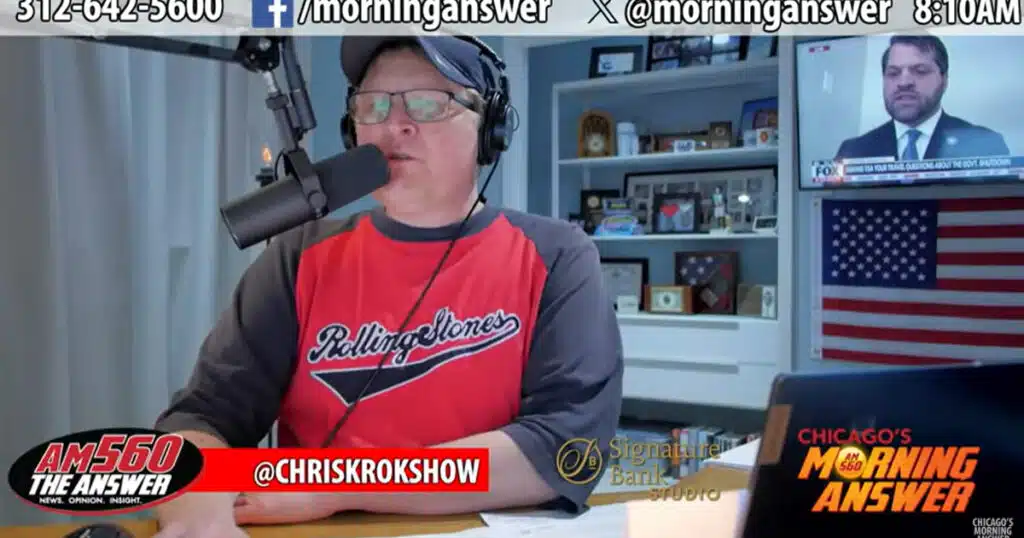
RADIO: Talking About The Portland Debacle, The Federal Shutdown And Other Messes
On Friday morning I was on Chicago’s Morning Answer show with guest host Chris Krok, sitting in for Dan Proft, and journalist Nick Sortor had been arrested the previous night for having been attacked by Antifa, That made for some spirited conversation, and then Chris asked me about the federal shutdown – which gave me a chance to expand on a column I’d written about the shutdown at The American Spectator last week…
From the Morning Answer’s website, as they wrote up the segment…
McKay reacted to the arrest of independent journalist Nick Sorder, who was taken into custody after being attacked while covering an Antifa protest outside a Portland ICE facility. Sorder said he was surrounded, shoved into a flower bed, and struck before Portland police arrested him rather than his assailants. McKay drew parallels to civil rights violations in the past, arguing that Portland’s political leadership has effectively ceded control of the city to violent activists while police stand down under orders. He warned that residents’ civil liberties are being trampled as officials allow intimidation and violence to continue unchecked.
The conversation then shifted to Capitol Hill, where McKay outlined the stakes of the ongoing government shutdown. He emphasized that Speaker Mike Johnson’s effort to return to “regular order” budgeting—passing 12 separate appropriations bills rather than massive omnibus packages—offers Republicans a chance to reset spending priorities. According to McKay, the current stalemate could allow Trump-aligned budget chief Russ Vought to implement sweeping cuts, eliminate wasteful programs, and shrink the baseline of federal spending for the long term. He suggested that Republicans should hold firm, pass individual appropriations bills, and refuse another short-term continuing resolution.
McKay also addressed reports that the White House is considering extending Obamacare subsidies to avoid political blowback over rising premiums. He cautioned that continuing such subsidies would undermine efforts to reform the individual health insurance market, though he acknowledged that short-term extensions may be unavoidable while longer-term alternatives are developed.
From Portland’s unrest to the looming budget battles in Washington, McKay framed both stories as examples of political leadership failing ordinary Americans—and as moments where decisive action could set a new course.



